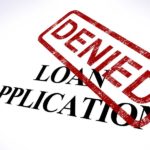CFPB: Top Debt Collection Questions AnsweredDaniel Dobbs2023-05-25T12:48:53-07:00
 Many buyers have past (often ancient) credit issues from past marriages, co-signed student loans, or a host of issues.
Many buyers have past (often ancient) credit issues from past marriages, co-signed student loans, or a host of issues.
And when they apply for a home loan many (past) creditors receive an “update file” alert/message from the credit bureaus.
Get the Lowest Interest Rate, Fees, and Fastest Service
YouTube – Straight Talk Lending – Daniel Dobbs
And that alert can delay/derail your commission check as it (seemingly always) at the VERY last moment!
Often the debt is so old its legally uncollectable – but that doesn’t keep the debt “re-sellers” from trying to “roll the debt forward” in the hopes of intimidating borrowers into paying the debt off at the last minute in order to close escrow.
The following is an article directly from the CFPB that I’ve shortened for readability.
If you have buyers with any hint of credit issues – put them in touch with an experienced MLO and require they pre-apply to obtain a Full DU Loan Approval
The MLO will root out their issues BEFORE you begin showing them properties!!!
Debt collection is consistently one of the top financial issues people have questions about when they visit our website.
While every situation is unique, these answers may help you better understand how debt collection works or help you identify steps that you can take to address your own situation.
What should I do when a debt collector contacts me?
There are different ways to respond appropriately to debt collectors.
When contacted, find out:
The identity of the debt collector, including name, address, & phone number
The amount of debt
What the debt is for and when the debt was incurred
The name of the original creditor
Information about whether you or someone else may owe the debt
We also have sample letters that will help if you’re experiencing common problems that may come up with debt collection.
How can I verify whether or not a debt collector is legitimate?
Ask the caller for their name, company, street address, & telephone number.
All states license debt collectors, so ask for a professional license number.
You can also refuse to discuss any debt until you get a written “validation notice.”
Do not give personal or financial information to the caller until you have confirmed it is a legitimate debt collector.
What is the best way to negotiate a settlement with a debt collector?
To negotiate a settlement or repayment agreement with a debt collector, consider this three-step approach:
1. Learn about the debt
2. Plan for making a realistic repayment or settlement
3. Negotiate a realistic agreement with the debt collector
Avoid companies that charge money in advance to settle your debts.
What should I do if a creditor or debt collector sues me?
If you’re sued by a debt collector, respond to the lawsuit.
You can respond personally or through an attorney, but you must do so by the date specified in the court papers.
When you respond to, or “answer,” the lawsuit, the debt collector will have to prove to the court that the debt is valid and that you owe the debt.
If you ignore a court action, it’s likely that a judgment will be entered against you for the amount the creditor or debt collector claims you owe.
Often the court also will impose additional fees against you to cover collections costs, interest, and attorney fees.
What is a statute of limitations on a debt?
A statute of limitations is the limited period of time creditors or debt collectors have to file a lawsuit to recover a past-due debt.
Most statutes of limitations fall in the three- to the six-year range, although in some cases they may vary due to:
State Laws & what type of debt you have
Whether the state law applicable is named in your credit agreement
If you’re having an issue with debt collection, you can submit a complaint online or by calling (855) 411-CFPB (2372).
Topics:
Join the conversation. Follow CFPB on Twitter and Facebook
 Many buyers have past (often ancient) credit issues from past marriages, co-signed student loans, or a host of issues.
Many buyers have past (often ancient) credit issues from past marriages, co-signed student loans, or a host of issues.